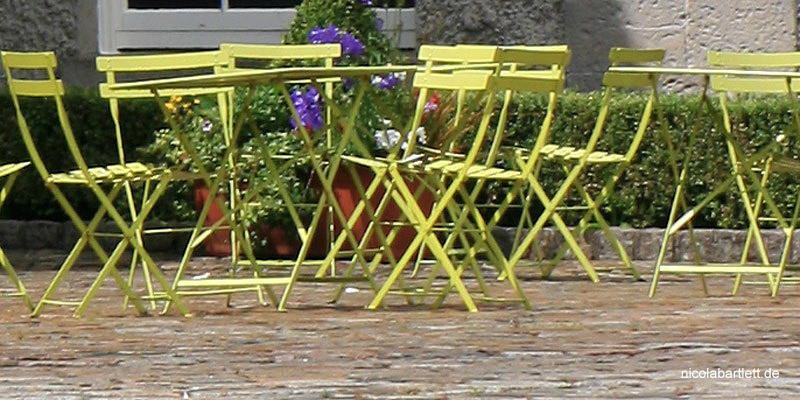
I guess we’re all familiar with the expectant, slightly tense atmosphere at the beginning of a workshop or seminar. The participants are often unsure what exactly awaits them during the day(s) ahead. Perhaps they’re forming their first impressions of you as a trainer. If they don’t know each other yet, they may be wondering how they’ll get on with the other members of the group. Added to this, when they are attending a workshop in English, they could be worried whether their language skills are up to the task. So especially in this situation, providing a clear framework and agreeing on rules at the beginning creates a much-needed sense of direction and security.
Presenting the agenda
You’ve spent so much time beforehand deciding on the best sequence for the material you want to present, the right moment for each activity, etc. Now it’s time to let the participants know what’s in store for them.
- So, what’s on the agenda for the next two days? Let me show you.
- We’ve got a pretty tight schedule for the next two days. Here’s an overview of what we’ll be looking at.
- We’ll be covering quite a lot of ground today …
- To give you an idea of what to expect today, …
- You’ll find a copy of the agenda in your folder. Let’s take a moment to look at it.
- Today we’ll be concentrating on … and …, then tomorrow we’ll move on to …
- After looking at …, we’ll turn to …
- In the morning we’ll be looking in detail at the theory behind …, then after lunch you’ll have the chance to put the theory into practice.
- We’ll have coffee breaks mid-morning and mid-afternoon and we’ll break for lunch at one o’clock.
- The workshop finishes at six o’clock today. Tomorrow it starts at nine and finishes at half past five.
Answering some key questions
How are we going to address each other?
One thing you don’t have to decide in English is whether to use du or Sie. But you don’t get off completely scot-free: you still have to clarify whether to use first names or surnames.
- We need to decide how to address each other while we’re here. Are you comfortable using first names? Please raise your hand if you are.
- In the English-speaking world, first names are generally used in this kind of workshop. Is that ok with everyone?
- Is it ok with everyone if we use first names?
Do I need to write everything down?
To avoid confusion, the participants need to know now how to deal with any documents you’ve supplied and also what you’ll be providing after the workshop.
- As you’ll have seen, you’ve each got a handout for the day. Please don’t look at it until I ask you to.
- I’m about to hand out a folder with some worksheets we’ll be using today.
- You can take notes if you want to, of course, but I’ll be sending each of you an email with photos of the flipcharts after the seminar.
- If you’re interested in receiving the slides, just let me know and I’ll send them to you after the seminar.
Where’s the coffee? What’s for lunch?
Attending a workshop is hungry and thirsty work! Use the following phrases to talk about catering arrangements.
- Coffee, tea, water and biscuits are on the table at the back of the room. Help yourself at any time during the day.
- Lunch will be served in the canteen at one o’clock. I’ve reserved a table so that we can all sit together.
- We’ll be going to a nearby restaurant for lunch. I’ll pass round a list of meal options in the coffee break so that you can choose what you’d like to eat.
- Has anyone got any special dietary requirements?
Agreeing on ground rules
You’ll have your own experiences regarding the ground rules you need to set for your workshop or seminar. Below are just a few ideas on what you can say to present rules, explain the reasons behind them and ask for commitment to them.
Introduction:
- To make sure that we work effectively together, we need to agree on a few rules.
- These [pointing to flipchart] are rules that have proved useful in previous workshops.
Phones:
- To prevent disturbances, I’d like you all to switch off your phones. Is that a problem for anyone?
- XY mentioned to me beforehand that he has to take an urgent call this morning. Is it ok for everyone else if he keeps his phone on until he’s received that call?
Timekeeping:
- As you’ll have seen from the agenda, we’ve got a busy day ahead. So please make sure you return from breaks at the time we’ve agreed.
- After lunch the room will be open from half past one onwards, we’ll be starting again at two o’clock sharp.
Confidentiality:
- As the trainer I can assure you that I won’t pass on anything you say in the course of this workshop.
- It’s essential that you treat everything shared by other participants confidentially.
Communication:
- Please listen carefully to the other members of the group.
- Please let people finish speaking before you add your views.
- If you don’t understand anything I or another member of the group says, please don’t be afraid to ask.
- No side conversations, please.
Committing to the rules:
- Could you raise your hand if you agree to these rules, please.
- Are these rules acceptable for you? Please raise your hand if they are.
Phew! That’s a lot to cope with in English, isn’t it? But the good news is that you can plan what you want to say in advance. Choose the phrases which best fit the situation and your personal style and then – practise, practise, practise!
This is Part 2 of a series of articles written for the magazine Training Aktuell. As trainers are increasingly required to provide workshops and seminars in English for international groups, this series aims to provide useful phrases and helpful pointers.
Part 1 looked at introductions and getting off to a good start.



